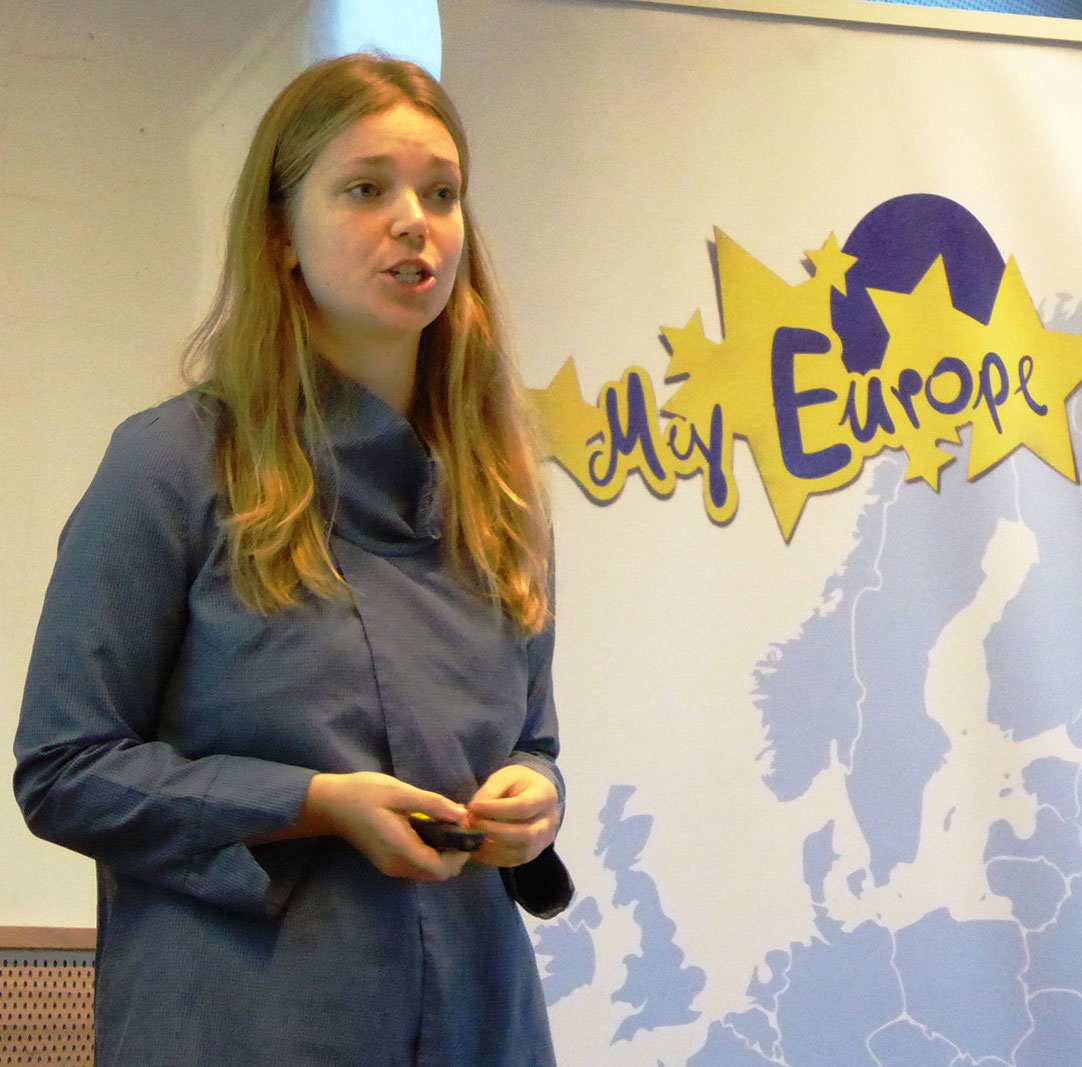 In 2014 SIPRI's European Security Programme participated in a number of initiatives that solicited the views of teenagers on the future of Europe. One of these initiatives was My Europe, which brought together students, politicians, business leaders, academics and journalists in workshops all over Europe.
In 2014 SIPRI's European Security Programme participated in a number of initiatives that solicited the views of teenagers on the future of Europe. One of these initiatives was My Europe, which brought together students, politicians, business leaders, academics and journalists in workshops all over Europe.
Launched in 2011, My Europe is designed to give a voice to young people and enable them to shape the future of Europe by fostering a sense of community and collective responsibility among Europe’s youth around a common future.
In November 2014 My Europe organized a workshop in Stockholm to assess how Swedish young people see their role in Europe. A total of 50 students from schools in the Stockholm area spent two days gaining insights into European issues, including the question of European security. SIPRI Researcher Lina Grip (pictured, right) led these discussions.
The Stockholm workshop included a writing contest, the winning entries being chosen by a jury including members from My Europe and the Swedish newspaper Svenska Dagbladet.
Asked to present their vision of the Europe they will live in as adults, the winning essays by young Swedish authors contained diverse ideas, including:
- developing new lightweight materials to be used in the construction of fully integrated European transport networks based on high-speed railways;
- ensuring free and unrestricted high-speed internet access for European citizens, even those living in the most remote locations;
- making Europe the first world region in which gender equality has been achieved beyond dispute; and
- developing a European basketball franchise that can become world champion with players from a mix of European countries.
Dr Ian Anthony, Director of the SIPRI European Security Programme, commented: ‘Swedish youth have an implicit understanding of some characteristics of the common European project—Europe works best when focused on realizing large, ambitious projects beyond the capacity of any single country.’
The full texts of the winning entries can be accessed online. For more information contact Lina Grip.